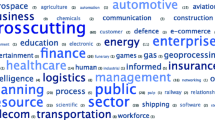Abstract
[Context and Motivation] "Those who cannot remember the past are condemned to repeat it" – George Santayana. From the survey we conducted of requirements engineering (RE) practitioners, over 70% seldom use RE lessons in the RE process, though 85% of these would use such lessons if readily available. Our observation, however, is that, RE lessons are scattered, mainly implicitly, in the literature and practice, which, obviously, does not help the situation. [Problem/Question] Approximately 90% of the survey participants stated that not utilising RE lessons has significant negative impact on product quality, productivity, project delays and cost overruns. [Principal Ideas] We propose “maps” (or profiles) of RE lessons which, once populated, would highlight weak (dark) and strong (bright) areas of RE (and hence RE theories). Such maps would thus be: (a) a driver for research to “light up” the darker areas of RE and (b) a guide for practice to benefit from the brighter areas. [Contribution] The key contribution of this work is the concept of “maps” of RE lessons.
Access this chapter
Tax calculation will be finalised at checkout
Purchases are for personal use only
Preview
Unable to display preview. Download preview PDF.
Similar content being viewed by others
References
Abdel-Hamid, T.K., Madnick, S.E.: The Elusive Silver Lining: How we Fail to Learn from Software Development Failures. J. MIT Sloan Management Review 32(1), 39–48 (1990)
Basili, V.R., McGarry, F.E., Pajerski, R., Zelkowitz, M.V.: Lessons Learned from 25 Years of Process Improvement: The Rise and Fall of the NASA Software Engineering Laboratory. In: International Conference on Software Engineering, pp. 69–79. ACM, Orlando (2002)
Basili, V.R., Tesoriero, R., Costa, P., Lindvall, M., Rus, I., Shull, F., Zelkowitz, M.: Building an Experience Base for Software Engineering: A report on the first CeBASE eWorkshop. In: Product-Focused Software Process Improvement, Kaiserslautern, pp. 110–125 (2001)
Bodycott, P., Walker, A.: Teaching Abroad: Lessons Learned about Inter-Cultural Understanding for Teachers in Higher Education. J. Teaching in Higher Education 5(1), 79–94 (2000)
Boehm, B.: A View of 20th and 21st Century Software Engineering. In: International Conference on Software Engineering, pp. 12–29. ACM, Shanghai (2006)
Damian, D.: Stakeholders in Global Requirements Engineering: Lessons Learned from Practice. IEEE Software 24(2), 21–27 (2007)
Daneva, M.: ERP Requirements Engineering Practice: Lessons Learned. IEEE Software Journal 21(2), 26–33 (2004)
Ebert, C.: Understanding the Product Life Cycle: Four Key Requirements Engineering Techniques. IEEE Software Journal 23(3), 19–25 (2006)
Hauksdottir, D., Vermehren, A., Savolainen, J.: Requirements Reuse at Danfoss. In: 20th IEEE Requirements Engineering Conference, pp. 309–314. IEEE, Chicago (2012)
Kotonya, G., Sommerville, I.: Requirements Engineering: Processes and Techniques. John Wiley, New York (1998)
Lee, M.: Making Lessons Learned a Worthwhile Investment. J. PM World Today 5(7) (2008)
Noorwali, I., Madhavji, N.H.: A Survey of Lessons Learnt in Requirements Engineering. Technical Report No. 750, Dept. of Computer Science, University of Western Ontario (2012)
Rogers, D.A., Elstein, A.S., Bordage, G.: Improving Continuing Medical Education for Surgical Techniques: Applying the Lessons Learned in the First Decade of Minimal Access Surgery. J. Annals of Surgery 233(2), 159–166 (2001)
Sary, C., Mackey, W.: A Case-Based Reasoning Approach for the Access and Reuse of Lessons Learned. In: Fifth Annual Symposium of the National Council on Systems Engineering, St. Louis, pp. 249–256 (1995)
Vandeville, J.V., Shaikh, M.A.: A Structured Approximate Reasoning-Based Approach for Gathering “Lessons Learned” Information from System Development Projects. J. Systems Engineering 2(4), 242–247 (1999)
Weber, R., Aha, D.W., Becerra-Fernandez, I.: Intelligent Lessons Learned Systems. J. Expert Systems with Applications 20(1), 17–34 (2001)
Wellman, J.: Lessons Learned about Lessons Learned. J. Organization Development 25(3), 65–72 (2007)
Author information
Authors and Affiliations
Editor information
Editors and Affiliations
Rights and permissions
Copyright information
© 2013 Springer-Verlag Berlin Heidelberg
About this paper
Cite this paper
Noorwali, I., Madhavji, N.H. (2013). Maps of Lessons Learnt in Requirements Engineering: A Research Preview. In: Doerr, J., Opdahl, A.L. (eds) Requirements Engineering: Foundation for Software Quality. REFSQ 2013. Lecture Notes in Computer Science, vol 7830. Springer, Berlin, Heidelberg. https://doi.org/10.1007/978-3-642-37422-7_9
Download citation
DOI: https://doi.org/10.1007/978-3-642-37422-7_9
Publisher Name: Springer, Berlin, Heidelberg
Print ISBN: 978-3-642-37421-0
Online ISBN: 978-3-642-37422-7
eBook Packages: Computer ScienceComputer Science (R0)




